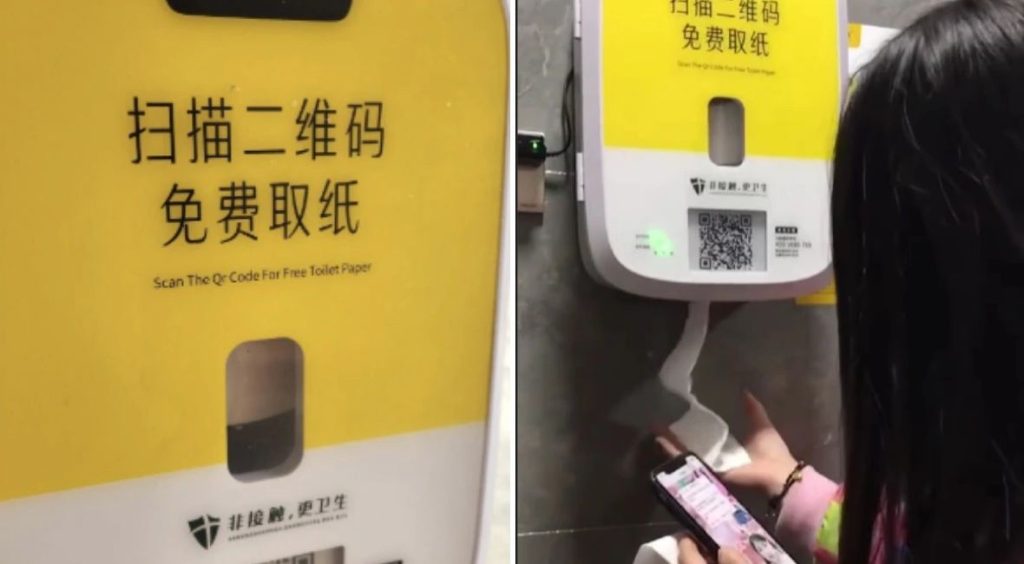In parts of China, a new toilet roll dispenser setup has sparked intense reactions. To get toilet paper, users must first scan a QR code on the dispenser. Then they are required to watch a 30-second commercial. Only after the ad finishes will the system release some sheets. If someone does not want to view the ad, there’s an alternative: pay a small fee, roughly equivalent to six US cents, to skip the advertisement and receive paper immediately.
Purpose Behind the Change
Officials say this setup is meant to reduce unnecessary waste. They believe that when paper is freely available and without conditions, many people take more than they actually need. By introducing a small barrier (either time via ad watching or money via payment), authorities hope to curb over-use and limit paper going to waste.

Reactions from the Internet
As soon as this arrangement became known, it was widely criticized online. Many compared it to dystopian fiction—“Black Mirror-esque” became a common phrase in discussion forums. Users shared disbelief that something so unusual could be implemented in public toilets. Comments ranged from mocking to outraged. Some said they would refuse to use such a toilet, damage the dispenser “on principle,” or bring their own paper just to avoid the setup. Others saw it as intrusive or absurd, believing that bathroom basics should not depend on watching ads.
Context of Public Facilities in China
Some commentary offered broader context about restroom amenities in China. Many pointed out that in many public bathrooms, free toilet paper is already rare. Travelers often carry their own paper or tissues as a precaution. In older buildings, or in places with less modern plumbing, dispensing free paper is less common. Others noted that in more modern or high-traffic locations—hotels, shopping malls, tourist spots—there tends to be better provision of paper and hygiene supplies.
Moral and Practical Questions
This arrangement raises questions about dignity, privacy, and fairness. Critics argue that basic hygiene should not be treated as something conditional on watching advertisements or paying extra. They worry that such systems create unnecessary discomfort, especially for people who may not have smartphones or who cannot scan QR codes easily. Also, critics debate whether the waste problem is really solved by this. Will people try to game the system—collecting extra sheets when possible, or hoarding paper? Could the ads become more intrusive? Will maintenance or hygiene suffer if usage drops or people avoid using the dispensers?

Potential Impacts & Lessons
On one hand, this could become a model for reducing waste in other public services—using behavioral nudges like minor friction (ads or payment) to encourage more conservative use of resources. On the other hand, it may trigger backlash, or resistance, if people feel their basic needs are being monetised or controlled. Designers of such systems will need to balance resource conservation with basic respect for users. If hygiene and access are hampered, the benefits (less waste, lower cost) might be outweighed by social cost—i.e. resentment, inconvenience, or public health concerns.

















